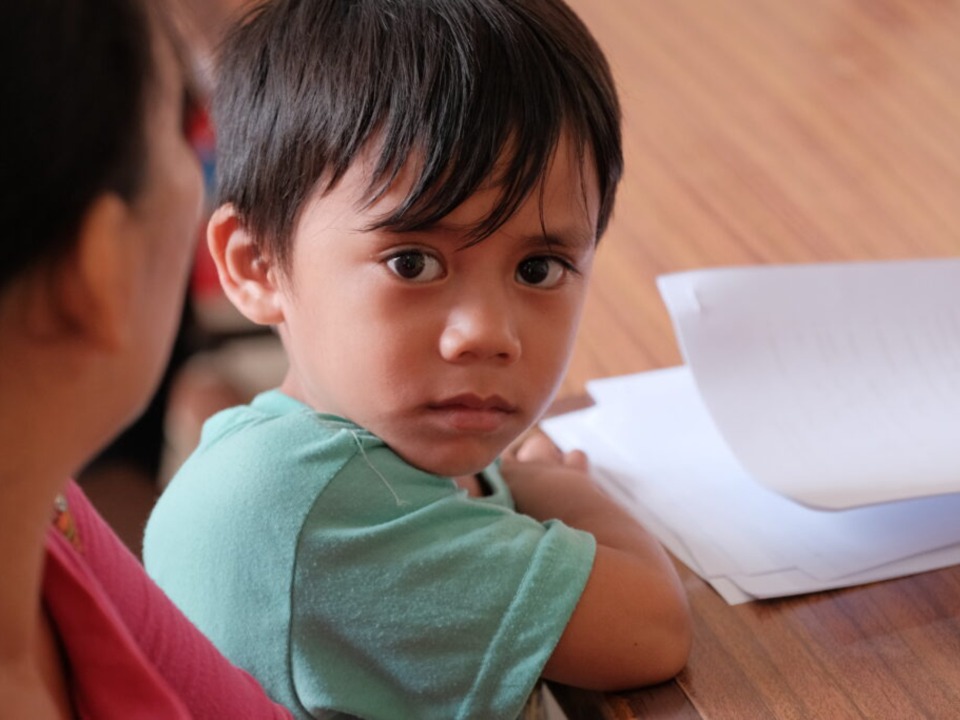
This story appears here courtesy of TheChurchNews.com. It is not for use by other media.
By Mary Richards, Church News
A healthy plate at mealtimes should have lots of color on it — but too often, plates are covered with just one color, like white, brown or yellow from rice, beans or cheese. And children especially need to have a variety of nutritious foods as they grow.
The Relief Society general presidency has been posting on social media in recent weeks about child nutrition, well-being and health.
“Poor nutrition in the first 1,000 days of a child’s life — from conception through pregnancy to the child’s second birthday — can lock children into a lifetime of devastating health challenges,” wrote Relief Society General President Jean B. Bingham on November 4.
In coordination with Church Welfare and Self-Reliance Services, the Relief Society general presidency is helping to get messages directly to parents about general child nutrition and health knowledge. They are sharing simple actions families can take to improve things like hand washing, clean drinking water, healthy food choices, breastfeeding, vaccination, sanitation and clinical visits.
“We wanted to start empowering families with a message right now,” said Luis Camara Manoel, a senior manager at the Church’s Welfare and Self-Reliance Services Department. He hopes that information going directly to families can help them to start making changes today that are within their power to help their children grow stronger.
“Malnutrition can compromise a child’s ability to grow to their full potential. It will compromise, for example, their brain growth and can be a key determinant to their ability to eventually become self-reliant,” he said.
Besides the social media posts from the Relief Society general presidency, this information will soon be available directly to families in less connected or more remote areas of the world. In the Philippines, where Camara Manoel said one in three children is estimated to have some level of undernourishment, local ward or branch councils and ministering brothers and sisters are already sharing these lessons with families under the direction of priesthood leadership.
But he said poor nutrition is also found in more developed nations or in families who earn good incomes, often because of multigenerational habits or dietary cultures.
“These are simple messages and these are simple things people can do right now. It is not tremendously complex, and it does not take a large amount of infrastructure to support.”
The messaging also highlights the importance of clean water and good sanitation. Sister Reyna I. Aburto, second counselor in the Relief Society general presidency, wrote in a November 18 social media post that access to clean water is essential to the healthy growth and development of children. But one in four people worldwide don’t have access to clean water.
Robert Hokanson, a senior manager in Welfare and Self-Reliance Services, said education about clean water and sanitation can break multigenerational cycles.
“One of the things we see is raising awareness and helping someone recognize that they perhaps are not living in optimal conditions is a tricky thing to do. That’s where local councils and families come in. They are the ones that will make the greatest use of good information. They will make choices that affect the lives of children,” said Hokanson.
Camara Manoel said these are eternal principles taught in the Word of Wisdom, and blessings come from following good health practices.
“As the Relief Society, we are immensely concerned about the well-being and health of God’s children,” President Bingham wrote on World Food Day in October. “We believe that we should follow healthy practices such as nutritious eating, regular exercise, proper hygiene and getting sufficient rest. God promises increased health, wisdom, knowledge and protection to those who follow these principles.”
Another aspect of good nutrition is gardening. Sister Sharon Eubank, first counselor in the Relief Society general presidency, posted about planting trees and learning hard work through gardening.
“Gardening is more than a hobby — it’s a major source of nutrition for humans worldwide. It amazes me how different fruits and vegetables grow all around the world, and yet they still provide universal nutrition for all of us,” Sister Eubank wrote.
An important part of child nutrition and well-being includes good medical care and accessing clinical services. This is not just a problem in remote areas or poorer nations. Even families living in major cities with access to free or reduced-cost care may still not use it, for a variety of reasons. Camara Manoel and Hokanson hope this information and educational outreach will reach families in these areas as well.
“These sound nutrition practices are especially important in the formative years, those first 1,000 days,” said Camara Manoel. “When followed, there’s a stronger likelihood that children will succeed in school, in early learning, into adulthood, and all the way to acquiring a job and reaching their full human potential. If we aspire for them to become self-reliant adults, we need our children to have those foundational building blocks early on.”
Copyright 2021 Deseret News Publishing Company